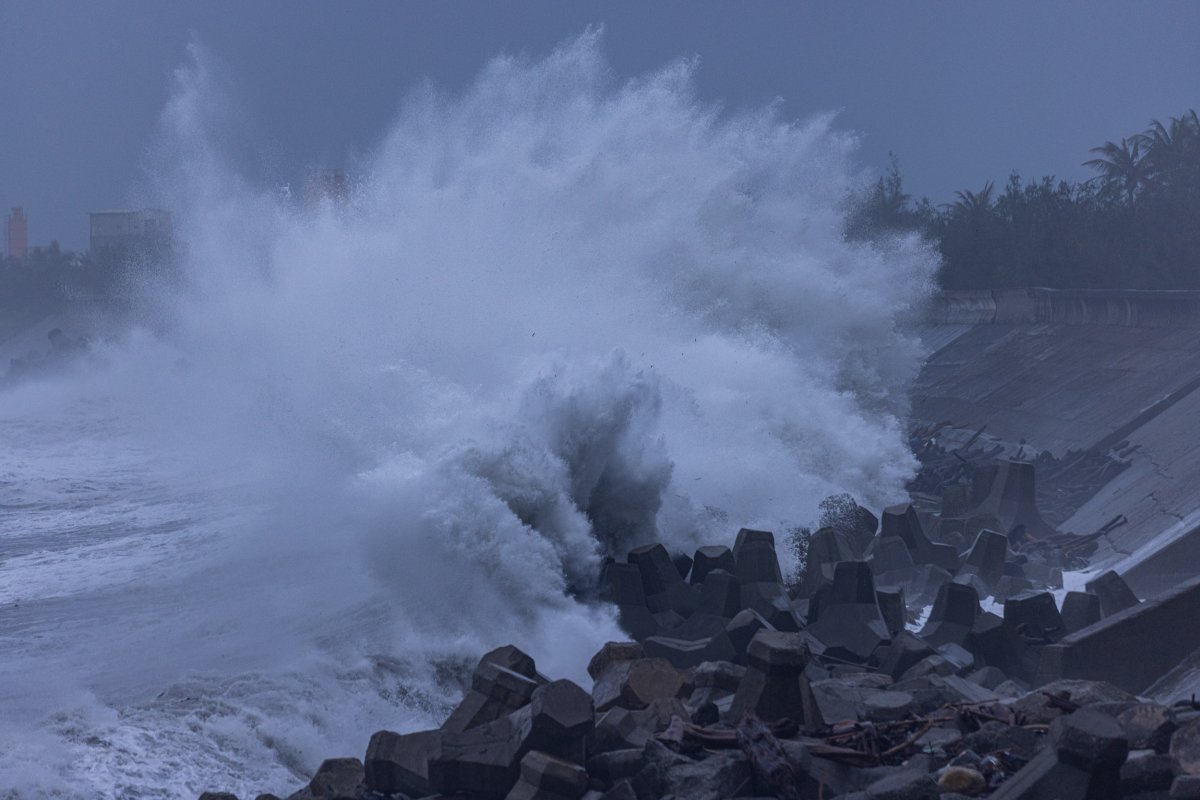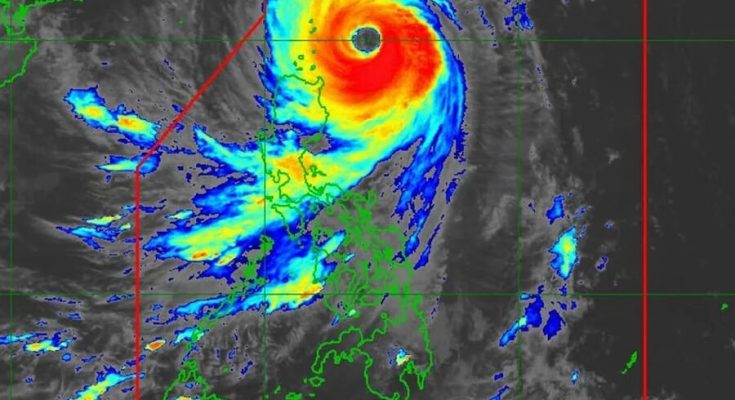A meteorologist has highlighted the enormous size of Typhoon Kong-rey’s eye as the huge storm neared Taiwan on Wednesday.
By Wednesday afternoon, Typhoon Kong-rey had maximum sustained winds of 130 mph, according to Zoom Earth. The storm has weakened a bit since Tuesday night when it was labeled a super typhoon with max sustained winds of 150 mph, similar to a Category 4 hurricane. Predictions suggest that Typhoon Kong-rey will lose more strength before it hits Kaohsiung in the early hours on Thursday.
On Tuesday night, meteorologist Noah Bergren from TV station WOFL in Orlando, Florida commented on how big the storm’s eye is.
“Super Typhoon Kong-rey is easily one of the largest eye’s in a major tropical system you will ever see on Earth,” Bergren posted on X (formerly Twitter). “Thing is absolutely massive.”

A wave crashes outside Fugang Harbor in Taitung, Taiwan ahead of Typhoon Kong-rey on Wednesday. The storm is expected to hit Taiwan early Thursday morning.Annabelle Chih/Getty
AccuWeather senior meteorologist Alan Reppert told Newsweek that having a large eye doesn’t always mean anything about how strong the storm is.
“It just means that the winds are farther away from the center than if it had a smaller eye,” he said. “It doesn’t really have any major defining characteristic of the storm.”
Reppert also mentioned that an older and stronger storm usually has a wider eye compared to newer ones.
Most spaghetti models—or computer models showing possible paths for storms—indicate that Kong-rey will land on Taiwan’s southeast coast and move across before coming out with max sustained winds around 75 mph. Models show that this typhoon will take a northeastern turn away from China into East China Sea.
Kong-rey’s strength isn’t typical for this time of year; The New York Times reported this too and noted it’s expected to make landfall like a Category 4 hurricane.
Reppert warned about strong winds up to 140 mph with higher gusts hitting southern Taiwan but expects it to weaken as it travels over the island. An AccuWeather report cautioned about “significant structural damage, mudslides and landslides” due to up to three feet of rain hitting Taiwan. The storm could either keep its power or even strengthen before making landfall early Thursday.
Eastern China and Japan are also bracing for heavy rain as this storm moves along.
A typhoon refers to severe tropical cyclones found in Northwest Pacific while hurricanes are what we call them in Northeast Pacific and Northern Atlantic regions; outside these areas they’re known as tropical cyclones.



